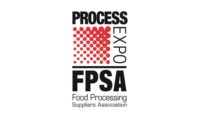HACCP Credential Closes the Verification Loop

While the basic focus of this article is food safety in the U.S., the principles of a Hazard Analysis and Critical Control Points (HACCP) system are global. The expectations of the Food Safety Modernization Act (FSMA) bring HACCP to the forefront of the battle against foodborne illness. While the examples may be U.S.-centric, the application of HACCP and the ideals of training and certification are global.
The 2011 passage of FSMA ushered in a new era of regulation and oversight designed to further improve the safety of food from farm to fork, emphasizing prevention rather than response. Provisions of the new law, as well as the defining rules, still leave some terms open to further definition. Among the provisions of the law and the rules is the description of a qualified person who has responsibility for developing and applying a food safety system.
As FSMA worked its way through Congress from 2009 through 2010, it became apparent that the identification of a qualified individual as required under the new rules could be left to interpretation. Because of that, training alone may not be enough to meet either the spirit or the letter of the law or rules. As many in the food industry know, it is not until the point of inspection or audit that you learn that you are not in compliance—which is, of course, too late.
Thus, we’ll address ways to complement a formal training program and/or equivalent job experience to ensure not only compliance with the law but also a more effective and safe food safety system.
A Recap of the History of HACCP
The genesis of HACCP can be traced back to a control system the Pillsbury Company created for the National Aeronautics and Space Administration (NASA) in the 1960s to ensure a safe food supply for the first manned space missions.
NASA’s engineers applied CCPs to test system reliability. That same concept was applied to the food safety systems for the spaceflights. NASA and Pillsbury required contractors to identify critical failures and eliminate them from the systems. The effectiveness of the process led Pillsbury to adopt what would become a formal food safety HACCP system.
The HACCP system and its guidelines were ultimately defined by the Codex Alimentarius Commission, an intergovernmental body established by the United Nations and later joined by the World Health Organization. Developed with a global approach, HACCP has become the accepted and recognized system for ensuring food safety worldwide. HACCP principles have also formed the basis for ISO system standards specifically for the food industry, like ISO 22000, which provides a framework for global trade in food and food products.
Evolution of Food Safety Principles
While many companies throughout the food chain have developed a series of safety programs, FSMA now requires that all U.S. Food and Drug Administration (FDA)-regulated food companies develop and implement written food safety or HACCP plans. This requirement applies to all facilities that manufacture, process, pack or hold human food. With only a handful of exemptions as we now understand them, the new preventive control provisions would apply to facilities that are required to register with FDA under the agency’s current food facility registration regulations. Companies that think they may fall under the new rule should discuss the exemptions to understand how the rules apply to them.
This new FDA rule requires that firms develop and implement written food safety plans. Under the new requirements, the written food safety plans should include the following:
• A Hazard Analysis
• Risk-based preventive controls
• Monitoring procedures
• Corrective actions
• Verification procedures
• Record keeping
In addition to creating plans that will pass FDA scrutiny, food companies will also need to demonstrate that these plans have been designed by a “qualified individual.”
How do these six elements of food safety plans link to HACCP? Here are the seven principles of HACCP:
• Conduct a Hazard Analysis
• Identify CCPs
• Establish critical limits for each CCP
• Establish CCP monitoring
• Establish corrective actions
• Establish procedures to ensure the HACCP system is working as intended
• Establish record-keeping procedures
The correlation between the FSMA requirements and HACCP is clear. A food establishment with a clearly developed and administered HACCP plan should meet the FSMA requirements. The key element in the process is the “qualified” person who develops and administers the plan. Preparing individuals to work in an HACCP environment is critical to the success of an effective food safety system.
The Importance of the Qualified Person in the HACCP System
A successful HACCP system depends on a cohesive blend of people in the process and facilities where the practices take place. Facilities and equipment should drive safe food-handling practices by employees who understand their role in the process and have been properly trained.
An effective manager in an HACCP environment understands not only the facility requirements and limitations, but also the commitment of management and workers to deal with programs that impact a food safety management system designed along HACCP principles.
The ultimate goal of the qualified person is to take the right actions to ensure safe food to consumers. Developing and maintaining an effective food safety management system is the key to attaining that goal.
To be robust, the management system must be underpinned with individuals who are competent in implementing the process—and such competency has to be consistent and verifiable.
The Role of Training in HACCP
For years, with guidance by organizations like the International HACCP Alliance and others, companies have developed training programs for individuals who would be deemed “qualified.” The burden of proof of qualification ultimately became the quality and integrity of the HACCP plan and its implementation. For companies hiring someone to develop and implement the plan, they trusted that he or she had obtained the requisite knowledge from one of the many courses offered for HACCP managers and auditors.
There is no argument: Training is vitally important. High-quality training programs are essential for food workers. These programs make it possible for them to achieve the competence and consistency necessary to ensure a safe food system. The key to determining the value of the training is understanding how training relates to learning and the application of knowledge to the job.
While training is defined as learning that is provided to improve performance on the present job,[1] it can seem like a simple concept out of context.
At its most basic, learning is what the person does; training is how she does it. Unfortunately, organizations become more fixated on training (the process) and presume that the person participating in the process actually understands and can apply learning principles.
Part of the challenge in a system as broadly applied as HACCP is that there is a wide array of training course material compounded by a broad style of instruction that may or may not be compatible with the wide array of individuals who have to apply the principles every day.
Consider, too, that HACCP is a globally accepted and applied system. Training is then compounded by the geographic and cultural gaps that come to bear with a vast array of training technologies, designs, programs and instructors. Ensuring the consistent application of training across such boundaries even within the framework of currently accepted training practices makes it hard to ensure that a truly “qualified” person is overseeing an HACCP system.
That is not to denigrate training. In fact, there are many good programs, outstanding training material and extraordinarily capable trainers who can share knowledge. The question becomes, Can the learner truly absorb the principles and apply them consistently and properly?
As seen earlier, the core principles of an HACCP plan, as well as the expectations of FSMA in a food safety system, while not overly complex, do require a strong knowledge of food, food safety, measurement, project management and more. The key is to bridge the gap between learning and application.
Certification as a Validation of Knowledge
An integral part of a good training program is a valid means of assessing the degree to which individual learners acquire the knowledge and skills intended for use in business.
In the case of application of HACCP knowledge, the consideration must focus on the certification of the person in the HACCP system and not the HACCP system itself. Certification of systems and processes has tremendous value but is framed in a very different set of processes and expected outcomes. For purposes of this discussion, the focus will remain on the certification of the person in the process.
Individuals who work with HACCP principles must develop the knowledge and skills to effectively perform jobs that can be complex and challenging. Both consumers and industry alike need to understand that these individuals have actually acquired this knowledge and skills.
Unlike a license, certification of an individual’s knowledge is a voluntary process by which individuals are evaluated against predetermined standards for knowledge, skills or competencies. In the case of HACCP, the “qualified” person would demonstrate that she has the knowledge, skills and attributes of an HACCP manager by successfully completing an independently administered assessment. The key to the validity of the assessment is that it is independent of any specific class, course or other education/training program and also independent of any provider of classes, courses or programs.
Delivering an autonomous assessment allows the learner to select the training course most appropriate for her job and learning style. This addresses the vast gap in training course material, geographic boundaries, culture, learner styles, etc. It is important to understand the value of the certification exam and how it differs from an end-of-course examination. In addition, the process used by a certification adds reliability, validity and legal defensibility to the outcome.
When a credentialing organization demonstrates that it has followed the proper steps in examination development, it has increased the likelihood that it will develop a valid and reliable exam. However, to create a valid and reliable examination that discriminates between truly qualified and unqualified candidates, exam questions must not only be proportionally directed at identified content areas, but must also be presented at various cognitive levels with an appropriate degree of
difficulty.
To assess a candidate’s competency, exams must contain questions that possess a sufficiently high degree of difficulty to challenge an individual’s depth of knowledge. Proper development and delivery of the examination provides assurance that the examination is effective and the results a realistic assessment of an HACCP manager’s knowledge.
Simply put, HACCP managers need to be trained in every facet of the HACCP system, and an independent examination will validate their knowledge as a “qualified” manager across the spectrum of food safety and systems knowledge. As the industry moves in this direction, food safety can only be enhanced by the proper implementation of HACCP principles. Note that the National Registry of Food Safety Professionals has already introduced an HACCP examination; please visit www.nrfsp.com/HACCP for more information.
 Larry Lynch is president and CEO of Environmental Health Testing, a holding company that includes the personnel certification body National Registry of Food Safety Professionals. Larry is also an accreditation assessor for the American National Standards Institute.
Larry Lynch is president and CEO of Environmental Health Testing, a holding company that includes the personnel certification body National Registry of Food Safety Professionals. Larry is also an accreditation assessor for the American National Standards Institute.
Reference
1. Nadler, L. 1984. The handbook of human resources development. New York: John Wiley and Sons.
Looking for a reprint of this article?
From high-res PDFs to custom plaques, order your copy today!






